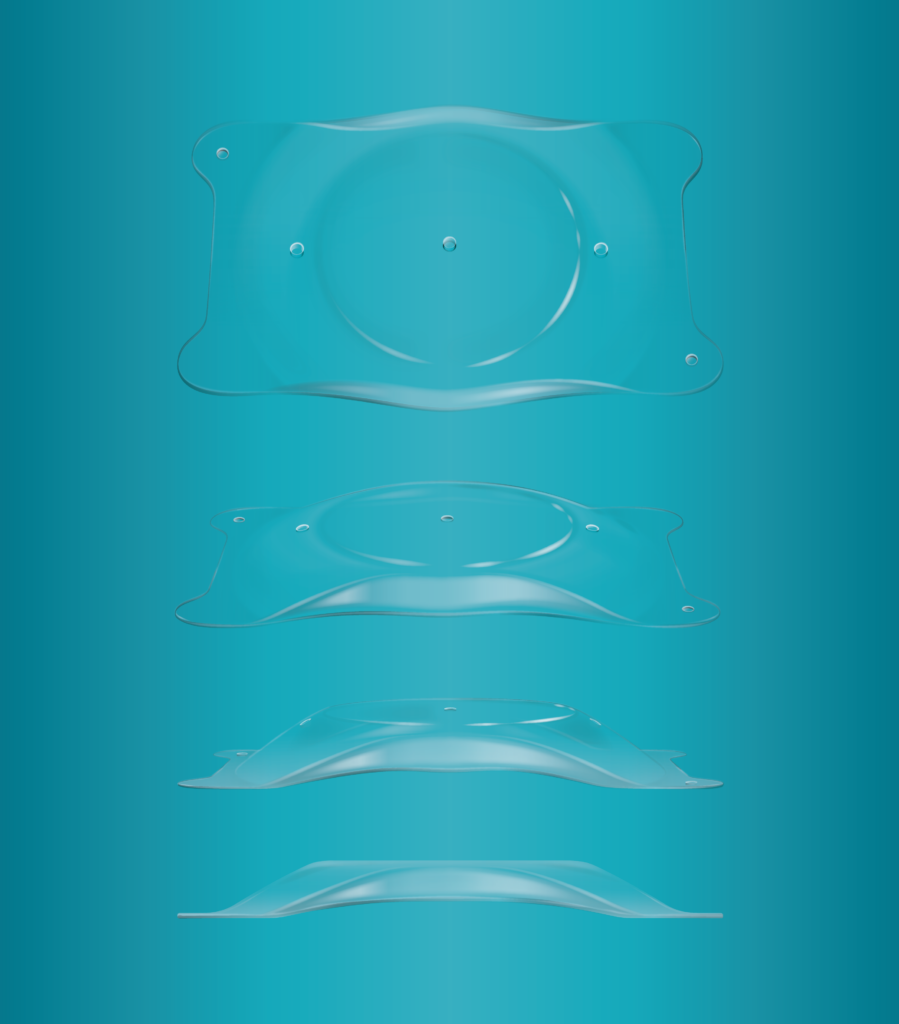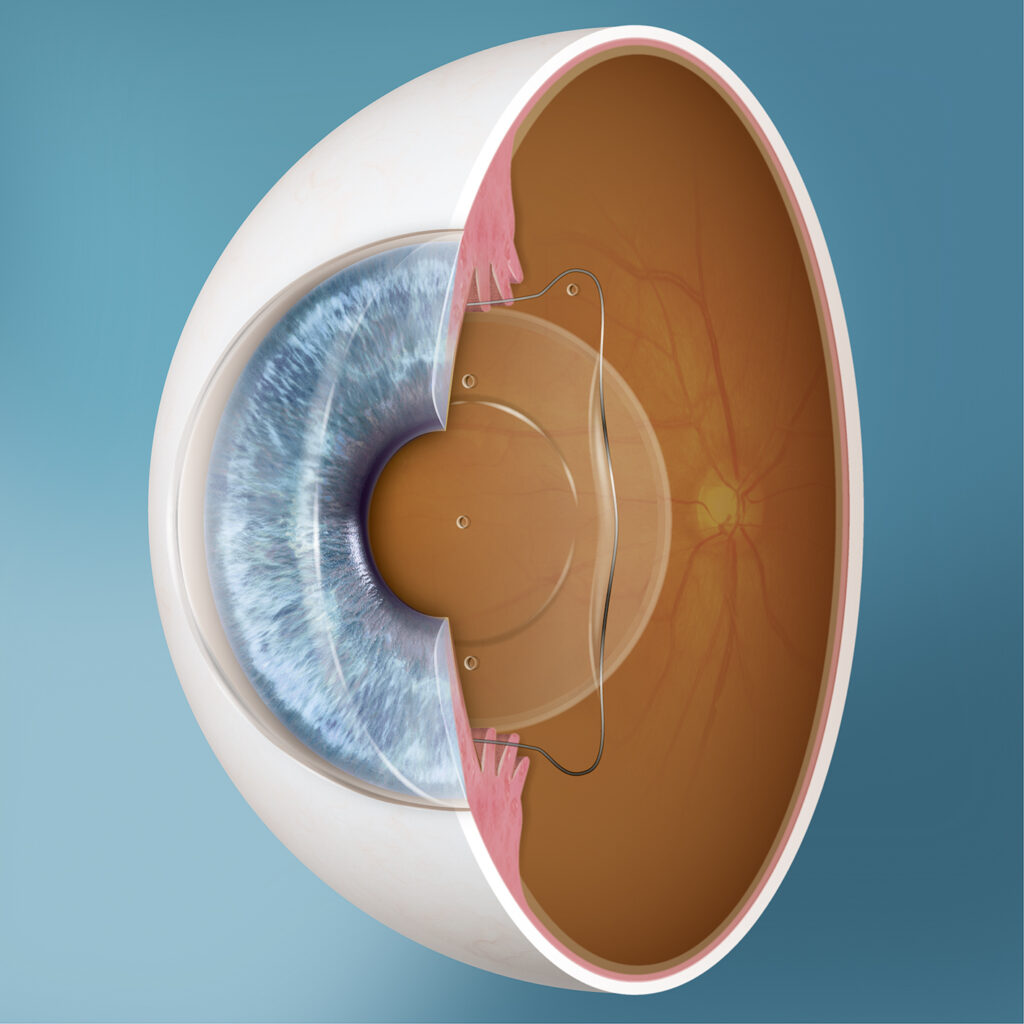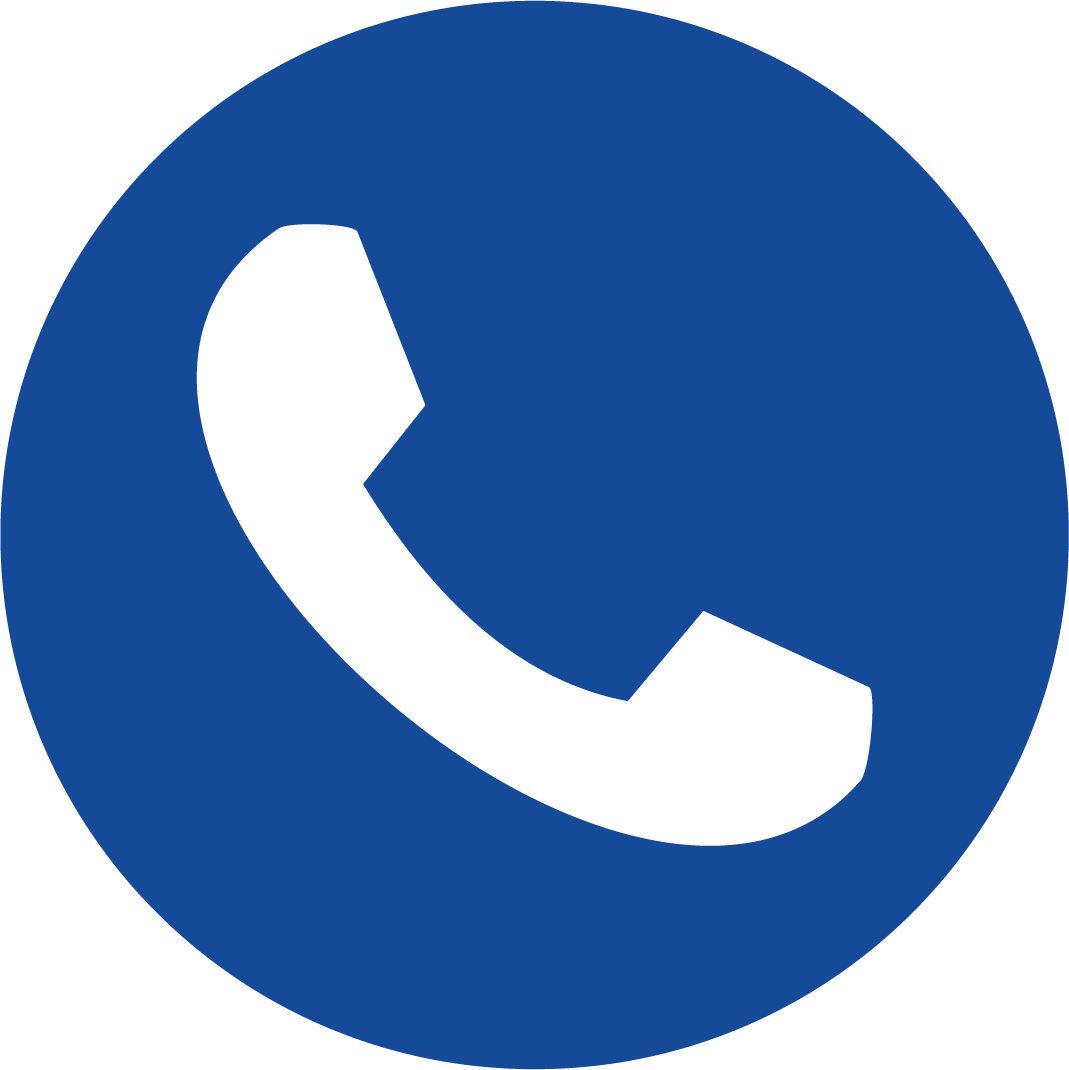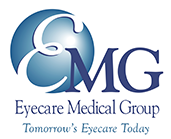There are many vision correction options for those interested in gaining visual freedom from glasses and contacts. At Eyecare Medical Group, we are excited to offer the remarkable EVO ICL as part of our array of vision correction options.
This cutting-edge solution brings a new dimension to vision correction, aimed at delivering improved distance vision and freeing you from the limitations of traditional eyewear. If you seek a clearer, more vivid view of the world around you, the EVO ICL may be an excellent choice.

What is an ICL?
Implantable collamer lenses, also known as ICLs, are a type of vision correction procedure that can reduce or in many cases, eliminate your dependence on glasses and contact lenses. EVO lenses are placed just beneath the surface of the eye to correct a wide range of nearsightedness and astigmatism. They are intended to be permanent but can be removed for added peace of mind.
What is the EVO ICL?
The EVO ICL is a type of lens that can correct vision in those who are nearsighted or who have nearsightedness and astigmatism. There are numerous unique benefits that the EVO ICL can offer to those who qualify as good candidates for the procedure.
First, this lens is designed using biocompatible materials, meaning it will work harmoniously with your eye once in place. Although intended to be a permanent solution for refractive errors, your eye doctor can remove the EVO ICL at any time, unlike other refractive surgery options, which cannot be reversed.
Since this method of vision correction does not involve any changes to your cornea, there is less chance of experiencing dry eye after the procedure. In addition, EVO also has built in UV protection.
Overall, the most significant benefit of choosing the EVO ICL is its ability to allow you to experience greater visual freedom with less dependence on glasses and contact lenses while improving your quality of life both day and night.
What Are the Benefits of Collamer?
Collamer is the proprietary material that the EVO ICL is made of. It offers several advantages:
Biocompatible and Optically Clear
Collamer lenses are designed to work naturally with the tissues of the eye. The material is also crystal clear to provide excellent optical quality.
UV Blocking
Collamer provides 100% UVB and UVA protection to shield eyes from harmful ultraviolet rays.
Minimizes Complications
The soft collamer material helps reduce common ICL complications like cataracts and glaucoma.
Stable Material
Collamer maintains its shape and optical properties over time.
What Happens During the EVO ICL Procedure?
On the day of your procedure, make sure you have arranged for someone to take you to and from the appointment. Although you will only be there for a couple of hours , you will need someone to drive you home.

First, your eye doctor will numb the surface of your eye with special eye drops to ensure your comfort. Then, they will make a tiny opening in the front surface of your eye, known as the cornea.
Through this 3.0 mm opening, your eye doctor will insert the EVO ICL and position it in front of your eye’s natural lens and behind your iris. Once in place, the procedure will be complete.
The tiny opening in your cornea will heal naturally during your recovery without the need for stitches. Many people notice an improvement in their vision immediately after the EVO ICL procedure.
However, it may take a few days to weeks for your eyes to adjust, and for you to experience the final results of the procedure.
What is Recovery Like After the EVO ICL Procedure?
It’s important to be patient during recovery and follow all instructions provided by your eye doctor to reduce the chances of complications. In most cases, recovery from the EVO ICL procedure is easy.
However, following the instructions closely and avoiding certain strenuous activities while allowing your eyes to heal will be essential to ensure a smooth recovery. Your eye doctor may also provide you with eye drops to promote healing.
It is also very important to use these drops exactly as instructed for the entire duration they are prescribed. You will need to return to your eye doctor’s office for a few follow-up appointments during your recovery so that your eye doctor can ensure you are healing, and your vision is improving.
What Are the Risks and Benefits of the EVO ICL?
Like any procedure, there are risks and benefits to choosing the EVO ICL.
Here are some of the benefits of choosing the EVO ICL:
- Improved distance vision
- Reduce dependency on glasses/contacts
- UV protection built-in
- Intended to be permanent but reversible
Here are some of the risks associated with the EVO ICL:
- As with any surgery, there are risks like infection and vision loss
- Specific risks include increased eye pressure, cataracts, corneal swelling
Your eye doctor will discuss risks and benefits with you during the consultation. Proper candidate selection and following post-op instructions can help minimize risks.
How Do I Know if the EVO ICL is Right For Me?
The first step in determining if the EVO ICL is the right choice for you is to schedule a consultation with your eye doctor at Eyecare Medical Group in Portland, Maine. During this consultation, your eyes will undergo a comprehensive examination, and your medical history will be reviewed to assess whether or not you may be a good candidate for the procedure.

If you have nearsightedness or nearsightedness with astigmatism, realistic outcome expectations, and don’t have certain eye conditions like diabetic retinopathy or glaucoma, you might meet the candidacy requirements. Your eye doctor will consider factors such as eye health, a history of dry eyes, and pupil size will also be considered.
Generally, good candidates are typically between 21 and 45 years of age, with a stable vision history of at least one year. Additionally, you must not be pregnant or nursing to qualify as a good candidate for vision correction surgery.
The comprehensive eye exam during the consultation will play a crucial role in determining the health of your eyes and whether the EVO ICL can help you achieve your desired vision goals. Based on the assessment, your eye doctor will provide personalized recommendations and guide you toward the most suitable option for your vision correction journey.





